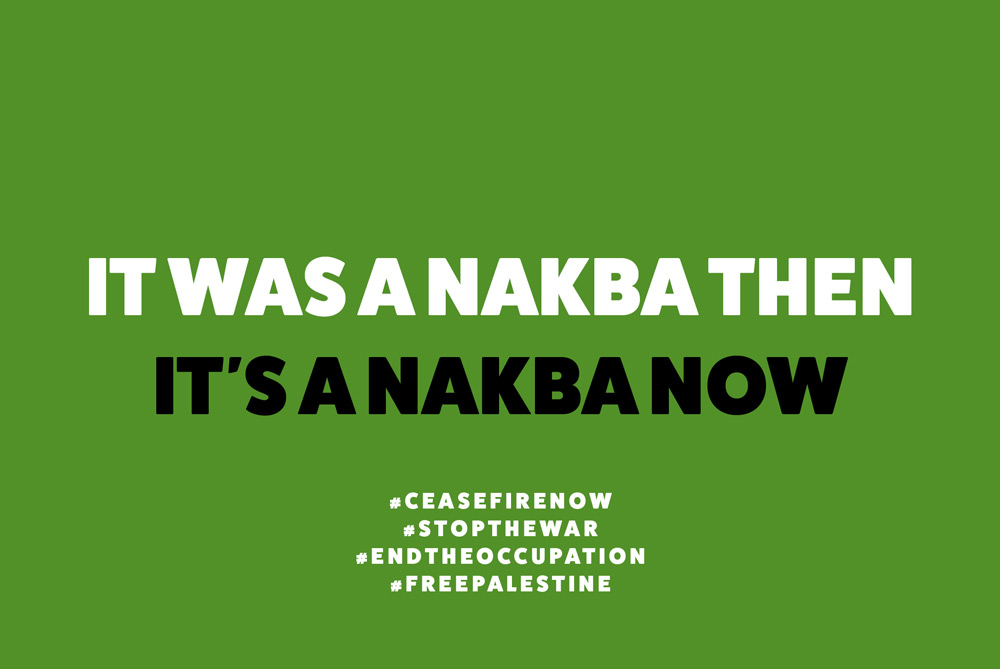Wednesday 15th May 2024 marked the 76th anniversary of the Palestinian Nakba. We’re using this graphic with the permission of our friends from Amos Trust. It says it all.
Here’s what 2012 Greenbelt speaker Mustafa Barghouti (a life-long, non-violent activist, and General Secretary of the Palestinian National Initiative) writes from Ramallah in the West Bank in a letter to supporters around the world:
“Today, the 15th of May, Palestinians commemorate the 76th anniversary of the Nakba (Catastrophe) when, during the process of creating Israel, Zionist forces committed more than 52 massacres against Palestinians and enforced ethnic cleansing on 70% of the Palestinian population forcing them to become refugees. In the process 520 Palestinian communities were erased.
The United Nations recognised Israel with the conditions that it would implement two UN General Assembly resolutions: Resolution 181 for the creation of two states where the Palestinian State would include 44% of the land of historic Palestine, and Resolution194 on the right of return which called for all displaced Palestinians to be allowed return to their homeland.
Israel never agreed to implement these resolutions.
70 % of Gaza residents are refugees or descendants of refugees displaced in 1948.
Since October 7th Israel initiated what Palestinians consider the second Nakba, killing and injuring no less than 120,000 Palestinians in Gaza Strip and destroying most of the houses, schools, hospitals and infrastructure, enforcing ethnic cleansing again on the already displaced Palestinians.
The number of Palestinians killed by Israel in Gaza in the last 7 months may have exceeded the number of Palestinians killed in the first Nakba.”
And Chris Rose, Amos Trust‘s Director, writes:
“The 76th anniversary of the Nakba marks the displacement of Palestinians in 1948, a tragedy echoing through the generations.
As we commemorate this event, the conflict in Gaza today highlights the ongoing struggle for justice and the urgent need for a resolution.
The Nakba’s legacy fuels the current war, highlighting the unresolved issues of displacement and human rights violations. Acknowledging this history is essential for understanding the root causes of the violence and working towards a just and lasting peace.
On this anniversary, we must commit, again, to Palestine justice and strive for a future of equality and dignity for all.”
This year, more than ever – at the festival and beyond – we stand in solidarity with Mustafa and the Palestinians in their decades-long struggle for their home/s, for self-determination, for peace and equal human rights.


